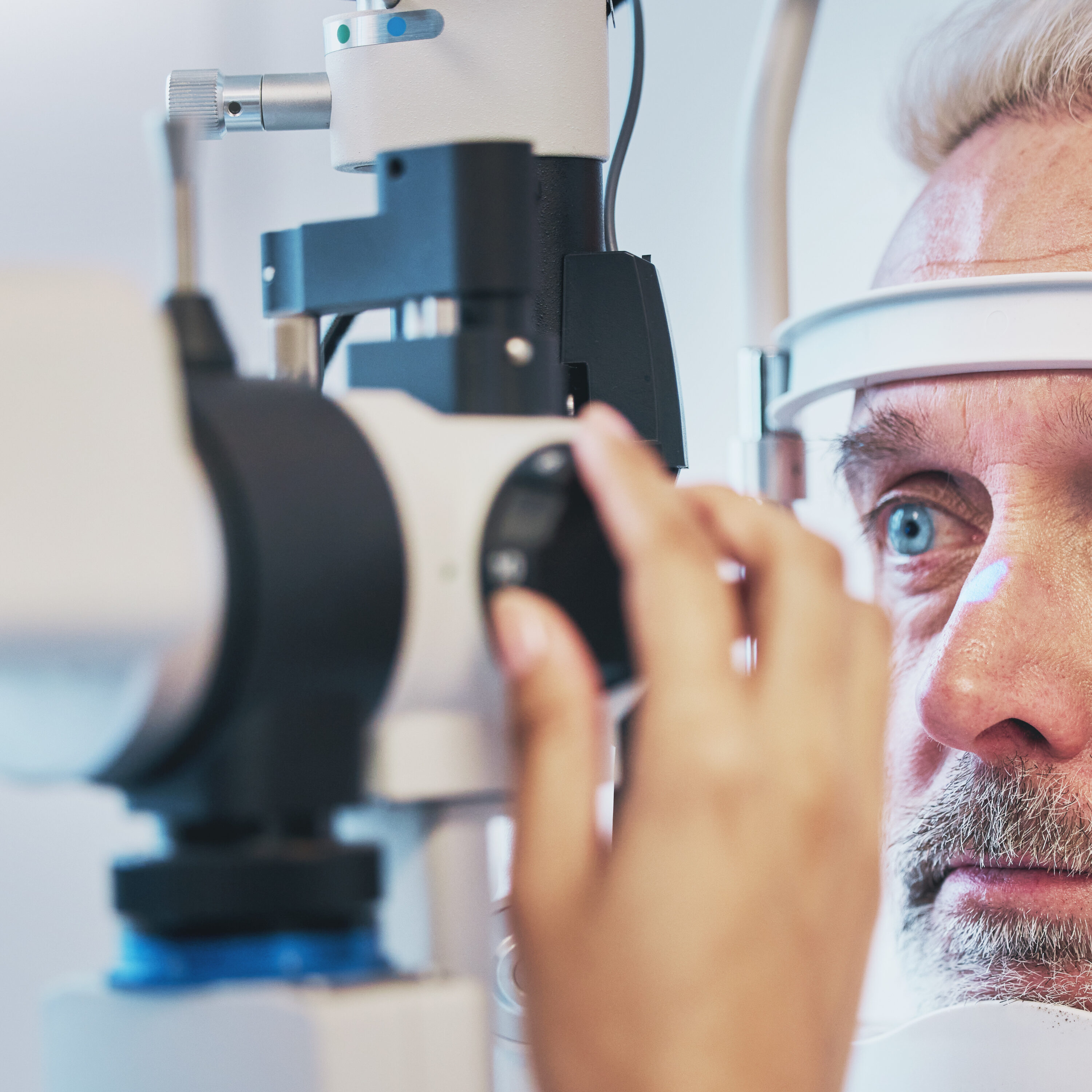Sussex Premier Health, Hastings: Important update for patients with upcoming appointments
Sussex Premier Health, Hastings: Important update for patients with upcoming appointments
Surgery to help slow the loss of your sight due to age
If you’ve been diagnosed with the eye condition age-related macular degeneration (AMD) you’re probably worried about the possible impact on your eyesight. The condition can lead to gradual loss of central vision, this is the ability to see what is literally straight in front of you and some people lose central vision at a faster rate.
You’ll meet your Ophthalmic Consultant in one of our private consultation rooms, they’ll ask about any previous eye surgery and your general health will also be assessed at this appointment. During this time, you will be able to explain your medical history, symptoms and raise any concerns that you might have.
We will also discuss with you whether any further diagnostic tests, such as scans or blood tests, are needed. Any additional costs will be discussed before further tests are carried out.
Depending on the outcome of your consultation, you will be offered a treatment.

The Treatment you’ll require will depend on the type of AMD you have.
To treat wet AMD our consultants offer anti-VEGF (vascular endothelial growth factor). It is not a cure but it can prevent further AMD-related vision loss. Some people who started treatment early regain some lost central vision. As it is carried out under a local anaesthetic and only takes a few minutes you can go home the same day. We pride ourselves on our clinical excellence you’ll be looked after by an experienced multi-disciplinary care team.
Eye Injections
Anti-VEGF medicines – ranibizumab (Lucentis), aflibercept (Eylea) and brolucizumab (Beovu)
Injections given directly into the eyes:
Stops vision getting worse in 9 out of 10 people and improves vision in 3 out of 10 people
Usually given every 1, 2 or 3 months for as long as necessary
Drops numb the eyes before treatment – most people have minimal discomfort
Side effects include bleeding in the eye, feeling like there’s something in the eye, and redness and irritation of the eye
Light treatment
Photodynamic therapy (PDT)
A light is shined at the back of the eyes to destroy the abnormal blood vessels that cause wet AMD:

Age-related macular degeneration (AMD) is a common condition affecting older people. About one in 100 people aged 65-75 and about one in eight people aged over 85 have AMD that is severe enough to cause serious visual loss. Although we accept that our vision deteriorates as we grow older a diagnosis of AMD might leave you feeling anxious about your future sight.
AMD affects the macula a small area at the centre of the retina which allows you to see what is straight in front of you. If you have AMD you might be experiencing: distorted or blurred vision, difficulty in seeing fine detail for reading or writing, a blank patch or dark spot in the centre of your sight, difficulty distinguishing between colours.
Having AMD might have a severe impact on your daily life. You might not feel comfortable or safe driving anymore, potentially making you more dependent on others and limiting your independence. You probably also have trouble reading and watching TV and you might not be able to enjoy time together with your family. Specialists always recommend treatment for AMD where it is available as the alternative is inevitable loss of central vision.
Our patients are at the heart of what we do, and we want you to be in control of your care. To us that means you can choose the consultant you want to see and when you want. They’ll be with you every step of the way.
All of our consultants are of the highest calibre and benefit from working in our modern well-equipped hospitals. Our consultants have high standards to meet often holding specialist NHS posts and delivering expertise in complex sub-specialty surgeries. Many of our consultants have international reputations for their research in their specialised field.
We’ve tried to make your experience with us as easy and relaxed as possible. We advise all our patients to remove any eye makeup, including mascara, eyeliner, and eye shadow before their visit to the eye clinic. Our dedicated team will also be in touch should you have any tailored advice to follow in the run up to your visit.
Speak to a member of our team